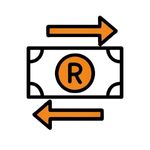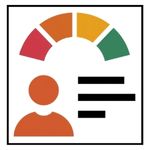
Borrowing money is a significant financial decision, and the timing of that decision can affect both the cost of borrowing and your ability to repay. With August presenting relatively stable interest rates and no immediate signs of economic shocks, it may offer South Africans a more predictable borrowing environment. However, the decision to apply for a personal loan should not be based on timing alone. It depends on your current financial position, credit profile, income prospects, and the purpose of the loan.
Key Takeaways
- August Offers Stability For Borrowers: Interest rates have recently stabilised, making August a practical time for South Africans to consider borrowing without unexpected cost increases.
- Check Your Financial Position First: Before applying, assess your income, credit profile, and repayment ability to avoid financial pressure or damaging your credit score.
- Loans Should Serve A Clear Purpose: Borrowing is most suitable for essential needs, debt consolidation, or investments that can boost income. Avoid using loans for luxuries or everyday bills.
How Personal Loans Work
A personal loan is most commonly issued as an unsecured loan, meaning the borrower is not required to provide collateral such as a house or a vehicle in order to access the funds. Since there is no asset backing the loan, the lender faces greater financial risk, which often results in higher interest rates when compared to those linked to secured loans. The actual interest rate you are offered will generally depend on several considerations, including your credit history and your debt-to-income ratio.
Certain financial institutions also provide the option of secured personal loans, where the borrower offers an asset as security. This asset could include your car, bank savings, or another form of property. These types of loans are generally more accessible for individuals who may not qualify for unsecured credit, and they often come with slightly lower interest charges. However, similar to other secured lending agreements, you risk losing the asset used as security if you fail to maintain regular repayments.
Even if you opt for an unsecured personal loan, missing payments or failing to meet your repayment obligations can negatively affect your credit score, and it may significantly reduce your chances of being approved for credit again in the future.

The Loan Process

Qualification
To qualify for a loan, lenders usually assess three main factors. Affordability is based on your monthly income after deductions and any current debts, to see how much you can repay. Employment refers to your job stability and how long you’ve been employed, which can affect how much you may borrow. Credit behaviour looks at how consistently you’ve repaid credit in the past, helping lenders measure your risk as a borrower.

Application
Before applying, identify the type of loan you need and approach a suitable lender. A credit score between 681 and 766 is generally seen as favourable. Make sure you meet the lender’s basic requirements. Prepare your ID, income and bank statements, proof of residence, employment details, and active bank account information. During the process, a credit check will be done. Avoid applying for multiple loans if you’re unsure of approval, as this can lower your credit score.

Loan Approval And Transfer
Approval time depends on the lender and loan type, usually taking between seven days and two weeks. Once approved, the funds are typically transferred into your account. Depending on your bank, this may take up to two business days to reflect.

Repayment
Accepting a loan means agreeing to the repayment terms. You must track either the loan end date or monthly instalments. Missing payments can lead to penalties, asset loss if the loan is secured, or a drop in your credit rating.

Account Closure
Some loans, such as home loans, require you to manually close the account once paid in full. This must be arranged with the credit provider. Lenders usually offer assistance to help with the process.
About Arcadia Finance
Apply for your loan effortlessly through Arcadia Finance. Choose from 19 reliable lenders, all NCR-compliant, and skip the application fees. Enjoy a simple, secure process designed around your needs.
Should South Africans Borrow In August?
August can be a practical time for South Africans to consider borrowing, particularly as interest rates have shown signs of stabilising following a recent rate reduction by the Reserve Bank. While no major shifts are expected in the short term, many financial analysts believe that future rate cuts could still be on the table later in the year if inflation remains under control and economic growth continues at a modest pace.
Why August Could Be A Sensible Month To Borrow
- Borrowing costs remain fairly stable, which allows you to make more accurate budgeting decisions when planning loan repayments.
- Lenders are likely to maintain current pricing, so you are less likely to be caught off guard by sudden interest rate hikes.
- If you’re already in a position where borrowing makes financial sense, August offers predictability, which is often preferable to waiting for uncertain changes later on.
Why You Might Consider Waiting
- Some borrowers may prefer to hold off until there is more clarity on future rate cuts, especially if they are looking for the lowest possible borrowing costs.
- If your financial situation is expected to improve in the coming months, such as through better income or improved credit, waiting could strengthen your application and potentially lead to better loan terms.

Things To Consider Before Applying For A Personal Loan

Evaluate Your Ability To Repay The Loan
Avoid borrowing large amounts just because the lender is willing to approve it. Only take out a loan you are confident you can repay without putting yourself under financial pressure. Ensure your loan application accurately reflects your financial situation. If you have the opportunity to earn additional income through freelance work, part-time jobs, or overtime, that extra income can help you meet your monthly repayments more comfortably.

Check If You Have A Strong Credit Profile
A good credit score can qualify you for more favourable interest rates on personal loans, which reduces the total amount of interest you’ll pay over time and results in lower monthly repayments. Applicants with strong credit records tend to be offered the most competitive loan terms. Keeping up with your repayments on time and in full contributes positively to your credit history and can improve your score further.

Compare Your Loan Interest To Potential Investment Returns
In certain cases, it may be more sensible to take out a loan rather than withdrawing from your investments. For instance, if your investments are earning a return of 15% annually and the interest rate on a loan is only 5%, then it may be financially beneficial to keep your investments intact and finance the purchase through a loan, avoiding the loss of the additional 10% return.

Consider Debt Consolidation If You Have Expensive Credit
If you are currently managing high-interest debts such as credit card balances, replacing them with a single, lower-interest personal loan could be a practical move. By doing so, you reduce the total interest you pay and streamline your monthly commitments into one repayment. This approach makes it easier to stay on top of your obligations and regain financial control.

Use A Loan To Advance Your Earning Potential
Investing in your personal development can offer long-term financial benefits. If you are confident that acquiring a new qualification or improving a skill will boost your career or income prospects, using a personal loan to fund training or short courses may be a worthwhile decision.

Borrowing For Essential Purchases You Cannot Delay
If you find yourself needing to make an urgent purchase and do not have the time to save up, taking out a personal loan could provide a solution. Make sure to compare different lenders to find a loan with affordable interest rates and repayment terms that suit your monthly budget.
When To Avoid Personal Loans
| When to Avoid Personal Loans | Explanation |
|---|---|
| Monthly Instalments That Strain Your Budget | If the required repayments are too high for what you can reasonably manage each month, it is best to postpone applying for a personal loan. Struggling to meet repayment deadlines increases the risk of missed payments or falling into arrears. This can negatively affect your credit score, and the lender may refer your account to debt collectors. |
| Excessive Interest Rates From Payday Lenders | Loans from payday lenders often come with extremely high interest rates that make repayment difficult. These types of loans can trap borrowers in ongoing debt, where they are forced to borrow again just to repay what they previously owed. It becomes a repeating cycle that is hard to escape. |
| Borrowing For Non-essential Spending | If you are considering using a personal loan for something that is not absolutely necessary, it is advisable to rethink your decision. It can be appealing to buy the latest fashion or a new tech device, but this type of spending can lead to regret, particularly when the financial pressure of monthly repayments begins to set in. |
| Using Loans For Recurring Minor Expenses | When it comes to small but consistent expenses, such as streaming services or electricity bills, it is more practical to use a credit card, provided you are able to pay the balance in full each month. This allows you to avoid interest charges while still covering your costs, and helps improve your credit score at the same time. |
| Maximise Everyday Spending With Credit Card Rewards | Using a credit card for routine expenses could earn you benefits such as cashback or reward points, as long as you pay off the amount in full each month. This is more efficient than using a loan for everyday costs. |
| Business And Education Costs May Be Excluded | Most personal loans cannot be used to cover tuition fees or business-related expenses. If you require funding for educational or entrepreneurial purposes, you should rather consider applying for a student loan or a small business loan, both of which are more appropriate for those needs. |
Conclusion
Borrowing in August can be a practical decision for South Africans, particularly given the current stability in interest rates and lending conditions. However, it remains essential to carefully assess your financial situation, credit profile, and the specific reason for taking out a loan. Borrowing should only be considered when it aligns with your financial goals and you are confident in your ability to meet the repayment terms. Whether you’re consolidating expensive debt, funding an urgent purchase, or investing in your future, taking a responsible approach to borrowing can help you make the most of the opportunity without exposing yourself to unnecessary risk.
Frequently Asked Questions
Yes, August may be a favourable time to apply, as interest rates are currently stable and predictable. This can help you budget more effectively for repayments.
Most lenders in South Africa consider a score between 681 and 766 to be good. A higher score generally improves your chances of approval and may lead to better interest rates.
No, most personal loans cannot be used for tuition fees or business costs. You should rather apply for a student loan or small business loan, which are designed for those specific purposes.
Missing a repayment can result in penalty fees, a lower credit score, and even debt collection if the account goes into arrears. It is important to repay on time or contact your lender if you face difficulty.
If your credit card interest rate is high, using a personal loan to consolidate your debt can be a practical option. This may reduce your total interest and make your repayments easier to manage.
Fast, uncomplicated, and trustworthy loan comparisons
At Arcadia Finance, you can compare loan offers from multiple lenders with no obligation and free of charge. Get a clear overview of your options and choose the best deal for you.
Fill out our form today to easily compare interest rates from 19 banks and find the right loan for you.




